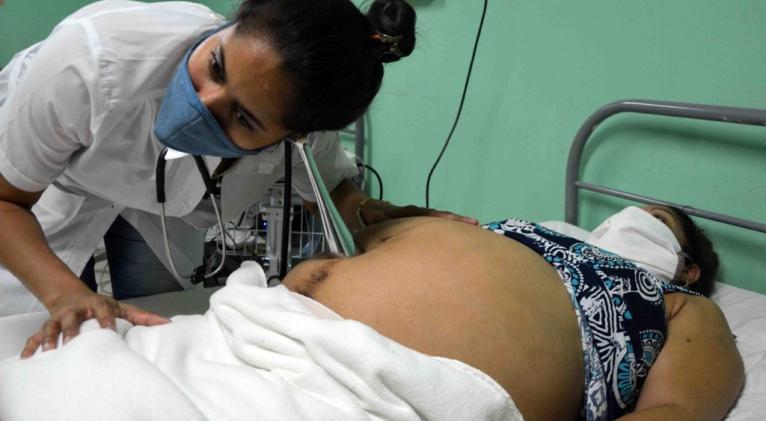Covid-19: When responsibility is multiplied by two
especiales

It is obvious that the responsibility to meet all biosecurity measures is ours. While protecting ourselves, we are protecting our loved ones as well.
Protecting ourselves by avoiding infection by Covid is also a way to avoid putting more health personnel at risk, investing fewer resources, and having less hospitals crowded.
Avoiding contagion will always be a multiplied responsibility.
But in the case of pregnant women, first and foremost, responsibility is multiplied by two: they must care for both their lives and that of the children in their bellies.
Sadly, it has not always been so. The statistics of the disease’s evolution in pregnant and postpartum women speak for themselves, especially after a pregnant woman died from Sars-Cov-2 last April.
It has been a concerning rising curve. Last year, only 110 pregnant women got infected and none of them passed away.
However, in 2021, especially after the emergence of the Delta strain in Cuba, numbers have skyrocketed to the point that there have been 4,500 pregnant and postpartum women infected. Unfortunately, more than 35 of them could not survive the challenge.
And it is really tough, as Dr. Danilo Nápoles Méndez — consultant to the Mother-Child Care Program (PAMI) — recently explained.
The adviser detailed that during pregnancy, the expectant mother supplies oxygen and nourishment to the baby, who is “permanently taking this oxygen from the mother.”
Therefore, if any respiratory distress, it will get worse as her body, no matter how difficult conditions may be, will keep on supplying oxygen needed to the baby.
As a result, we are witnessing an increase not only in patients in serious conditions, but also premature deliveries in infected mothers, the doctor said.
Prevention, synonym of Love
No synonym-antonym dictionary will describe it so, but in Covid-related cases, prevention may well be synonym of love. Especially when we refer to future moms.
Not by chance PhD in Sciences Sara Urgellés Carrera, specialist in second degree in Gynecology and Obstetrics, and Tenured Professor at the Military Hospital Luis Díaz Soto, highlighted in a televised report the importance of prevention.
The also Lieutenant Colonel Urgellés Carrera insisted on the augment of infected pregnant and postpartum women and some of them were in intensive care units, reported in serious or critical conditions.
Given this situation, it was necessary to terminate pregnancy at 26 to 30 weeks due to risks associated. Thus, we have been making emphasis on the complications in the evolution of infected pregnant women.
She highlighted that such negative evolution is particularly experienced by obese pregnant women and unbalanced diabetic mothers. Therefore, she urged community doctors to pay special attention to these conditions.
“Pregnant women cannot go outside, and every individual living in with them must take all precaution necessary to avoid contagion,” she warned.
A propos of the vaccination process in pregnant and postpartum women, which kicked off last July 29th, she said that it is important that people know that the vaccine does not cause any harm neither the expectant mother nor the baby, and it does favor a better evolution in case of contagion.
Anyway, the best thing is to avoid any risk of infection. That is why, wherever a Cuban pregnant woman lives, every precaution must be taken. It is important to observe in details all protection measures and try hard to maintain the pregnant woman at home, waiting for a happy and safe birth.
Translated by Sergio A. Paneque Díaz / CubaSí Translation Staff














Add new comment